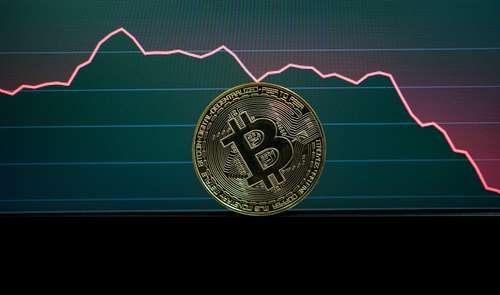Sweden is making waves in the digital currency world with a new, controversial directive. The country's Justice Minister recently instructed law enforcement to seize digital assets without direct proof of criminal activity. This decision has stirred up discussions among crypto enthusiasts, legal experts, and citizens alike. The move is part of a broader effort to track unexplained wealth, especially when it comes to cryptocurrency holdings.
The directive signals a radical change in how Swedish authorities handle digital asset control. Instead of waiting for conclusive evidence of wrongdoing, police can now take action based solely on suspicions of illicit financial activity. This has raised eyebrows across multiple sectors and left many wondering: Is this really the future of cryptocurrency regulation?
The New Directive Explained
This section introduces the key elements of the new directive and how it diverges from traditional asset seizure practices. The idea is to get ahead of financial crime before it escalates, targeting assets that seem unusually large or come from opaque sources.
The new regulation goes against the conventional approach. Typically, police and law enforcement require a solid trail of evidence before taking action. However, under the updated crypto law, the mere presence of large, unexplained digital currency holdings can prompt asset seizure. This is seen as a proactive stance to counter financial crime and boost blockchain enforcement in a rapidly evolving field.
Many wonder if this is a step too far. Critics argue that seizing digital assets without proof of crime can lead to overreach by law enforcement. On the other hand, supporters of the measure believe it is a necessary tool in a time when criminal networks are increasingly sophisticated in hiding illicit funds. By expanding its grasp on crypto assets, Sweden is attempting to plug loopholes that have long been exploited by those involved in money laundering and other financial malpractices.
This move has ignited a debate on the balance between security and individual rights. How much control should the authorities have over personal crypto holdings? The Swedish government insists that this is about ensuring transparency in financial transactions and preventing the misuse of digital currencies for criminal activities.
Impact on Cryptocurrency Regulation
In this section, we dive into the possible implications of the new directive on overall cryptocurrency regulation. Both local investors and international traders are keeping a close eye on how Sweden's bold stance might reverberate across the global crypto landscape.
The heightened control over cryptocurrency regulation in Sweden could lead to a chain reaction. Already, there are signs that Swedish authorities are setting a precedent for tighter control over digital assets. This could inspire similar measures in other countries, prompting discussions on how best to balance regulatory measures and the innovative spirit of blockchain technologies.
For those interested in digital asset control, this directive represents a merging of traditional law enforcement methods with new-age technology. The idea is that by seizing assets that appear suspicious, police can deter potential financial crime before it escalates into more serious legal issues. However, this proactive approach also begs the question of whether the absence of evidence should suffice to take such drastic measures.
Many within the crypto community have raised concerns over what many are calling a crypto crackdown that might stifle legitimate innovation. Digital currencies were created with the idea of decentralization in mind, and when state power intersects too heavily with crypto law enforcement, the fundamental tenet of privacy and freedom could come under threat.
Law Enforcement and Legal Concerns
This section examines the delicate position law enforcement now occupies and explores legal issues that have emerged from this directive. Swedish authorities are now walking a tightrope, balancing between safeguarding public interest and protecting individual freedoms.
The directive essentially instructs the police to seize digital assets when there is simply an unexplained or unusually high amount of crypto, even if no crime is proven. This is a significant shift in legal proceedings related to asset seizure. Traditionally, law enforcement has needed concrete evidence to justify such actions, but this new approach is based on the assumption that unexplained wealth is inherently suspicious.
The legal landscape is now fraught with challenges. Critics argue that this change undermines the principle of 'innocent until proven guilty'. The concern is that law enforcement may be empowered to take drastic action against individuals who might just be savvy investors. The debate is further fueled by the fear that the authority could be misused, causing undue harm to those who are simply benefiting from successful crypto investments.
There is also anxiety among crypto investors about the lack of clear guidelines. Everyone wants to know: When does an unexplained digital currency holding cross the line into illegal territory? Evidently, the current policy leaves room for subjective judgment, which might be problematic as police discretion varies from one official to another.
Real-World Impacts and Future Outlook
Let's now look at the tangible impacts of this new directive and what it means for the future of digital currency and crypto law enforcement. Sweden's new approach is already reaping results, with reports of significant asset seizures raising both eyebrows and questions around the globe.
Lobbyists, investors, and crypto enthusiasts have noted that enforcement agencies are now more vigilant. By focusing on blockchain enforcement and regulatory measures, Swedish police have demonstrated that they are not waiting for a confirmed crime to take action. This has led to immediate asset seizures that some see as justified, while others criticize it for jumping the gun.
Many in the cryptocurrency community are watching closely. This isn’t just a local issue – its ripple effect might well expand internationally. The case of Sweden serves as an intriguing example of how a nation adapts its legal systems to new technology. Just like early internet regulations have shaped global digital policies, this crypto crackdown could be a harbinger of more stringent measures worldwide.
The future remains uncertain. Will other countries adopt similar regulatory policies, or will Sweden be seen as an outlier in the digital currency world? What remains crucial, however, is the need for clear and comprehensive guidelines. Law enforcement must walk a fine line between safeguarding the public from financial crime and ensuring the rights of investors are not trampled upon by overzealous regulatory measures.
This fresh approach by Swedish authorities is a bold step towards modern financial security. Personally, I wonder if this model might eventually lead to more collaboration among nations as they seek to counter increasingly sophisticated criminal enterprises. The blend of digital currency innovation with rigorous law enforcement might just be the pathway to a safer financial future – or it could risk chilling the vibrant innovation that makes cryptocurrency so exciting.
Sweden’s decision sets the stage for a profound debate on the relationship between individual rights and state power in the digital age. It certainly feels like we’re witnessing the beginning of a significant transformation in crypto law, one that will likely influence other regulatory frameworks around the world. In any case, it’s an evolution that many in the digital currency realm will be watching very closely!




